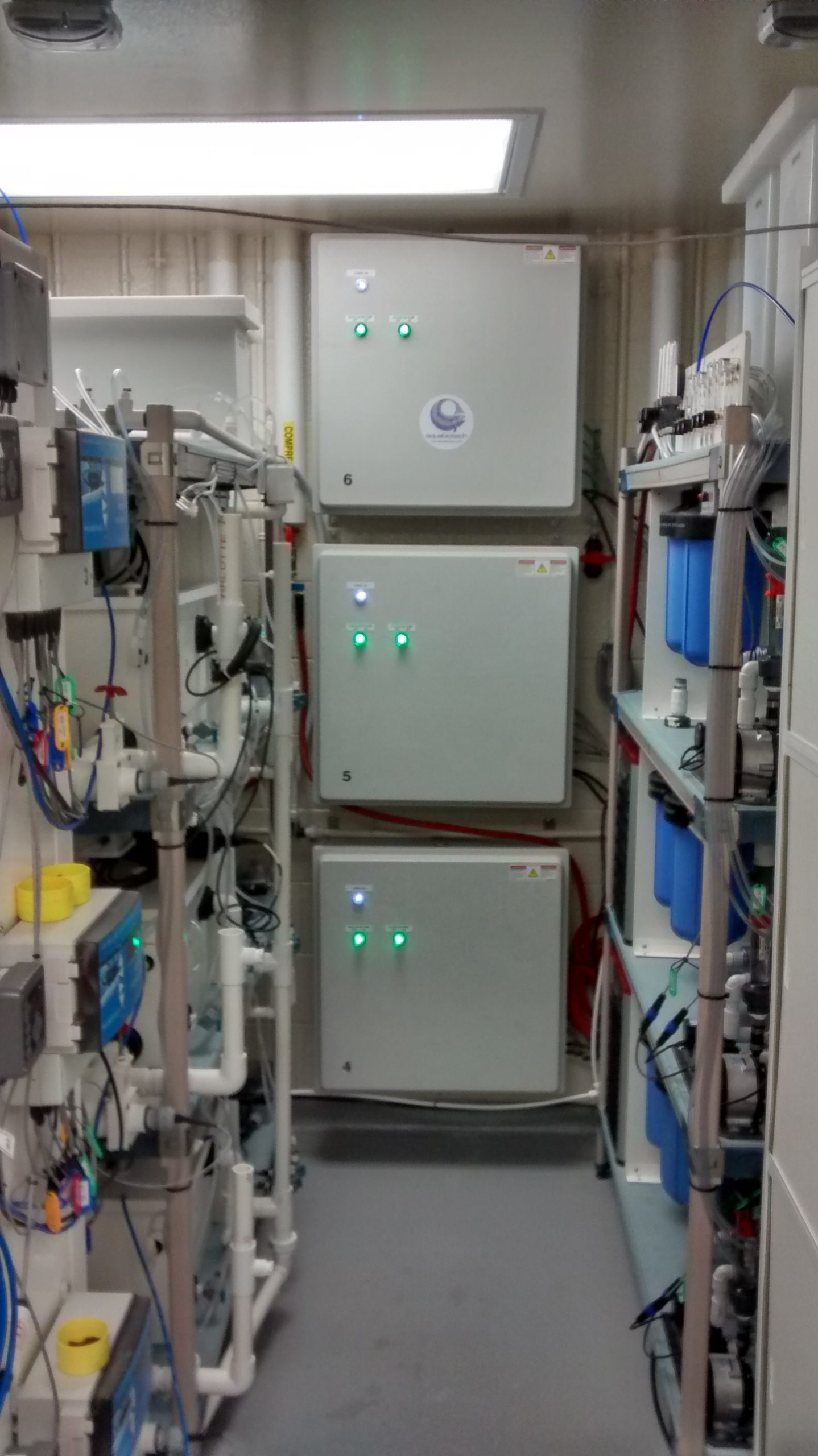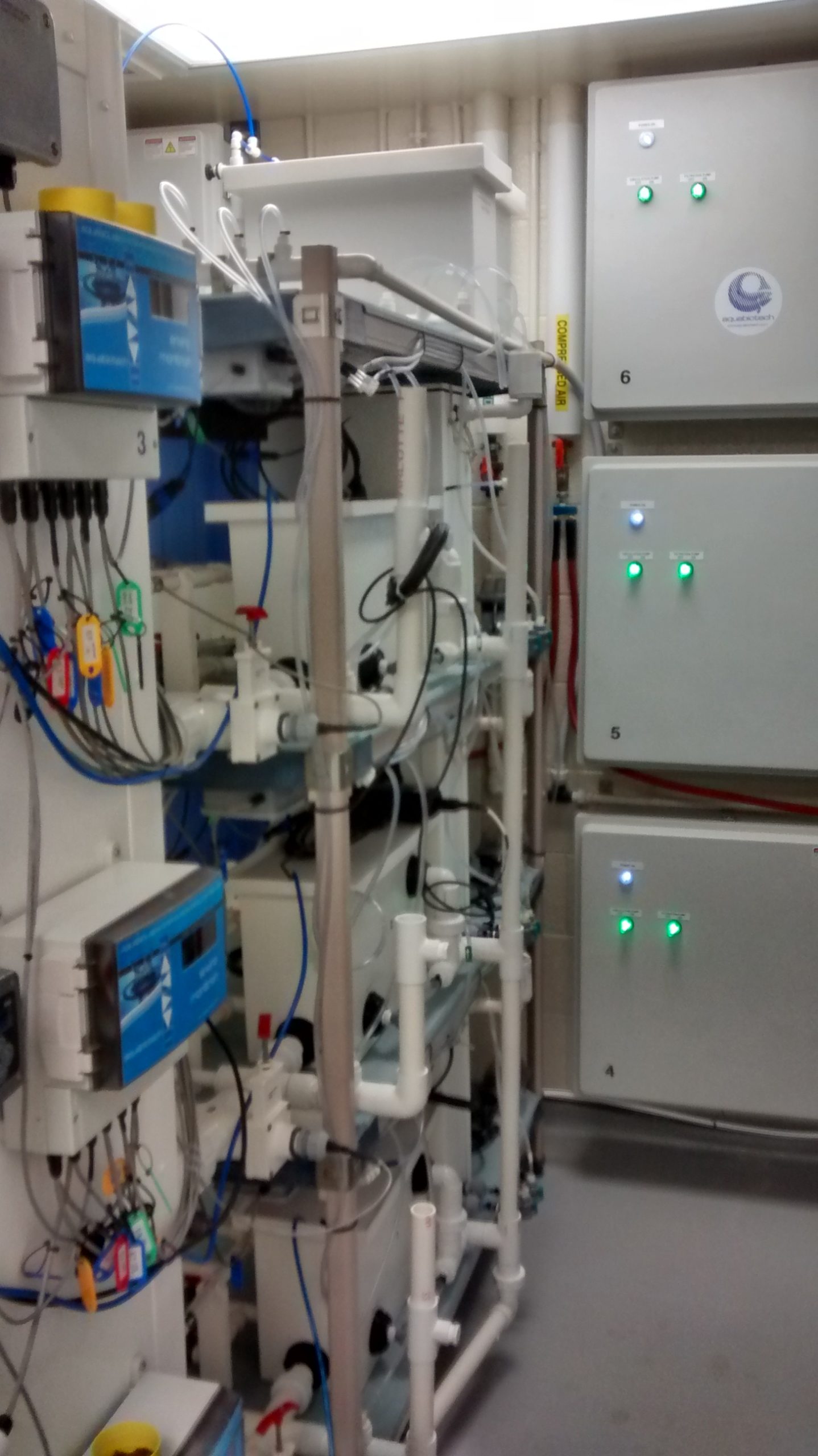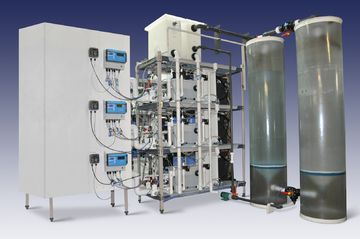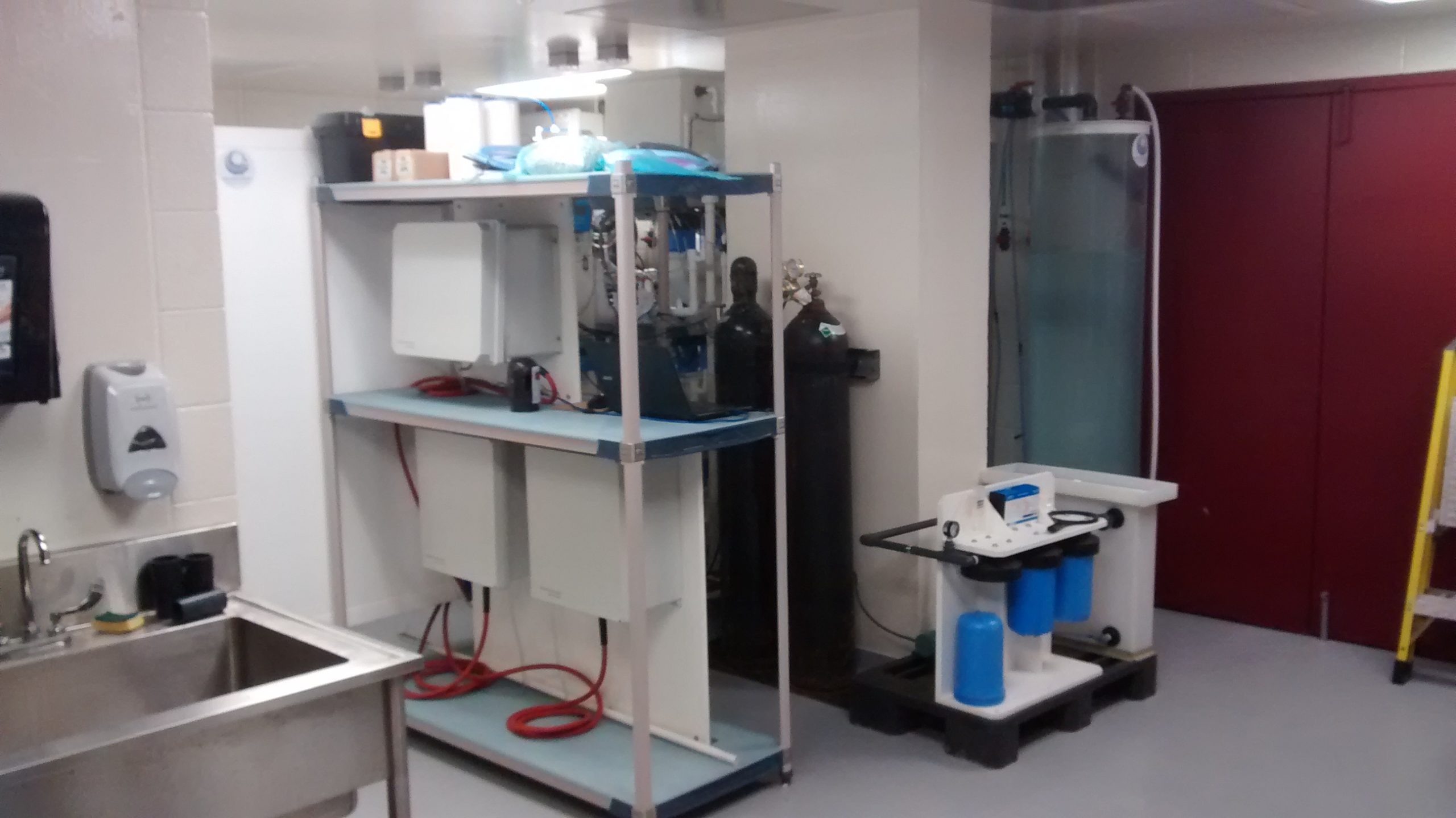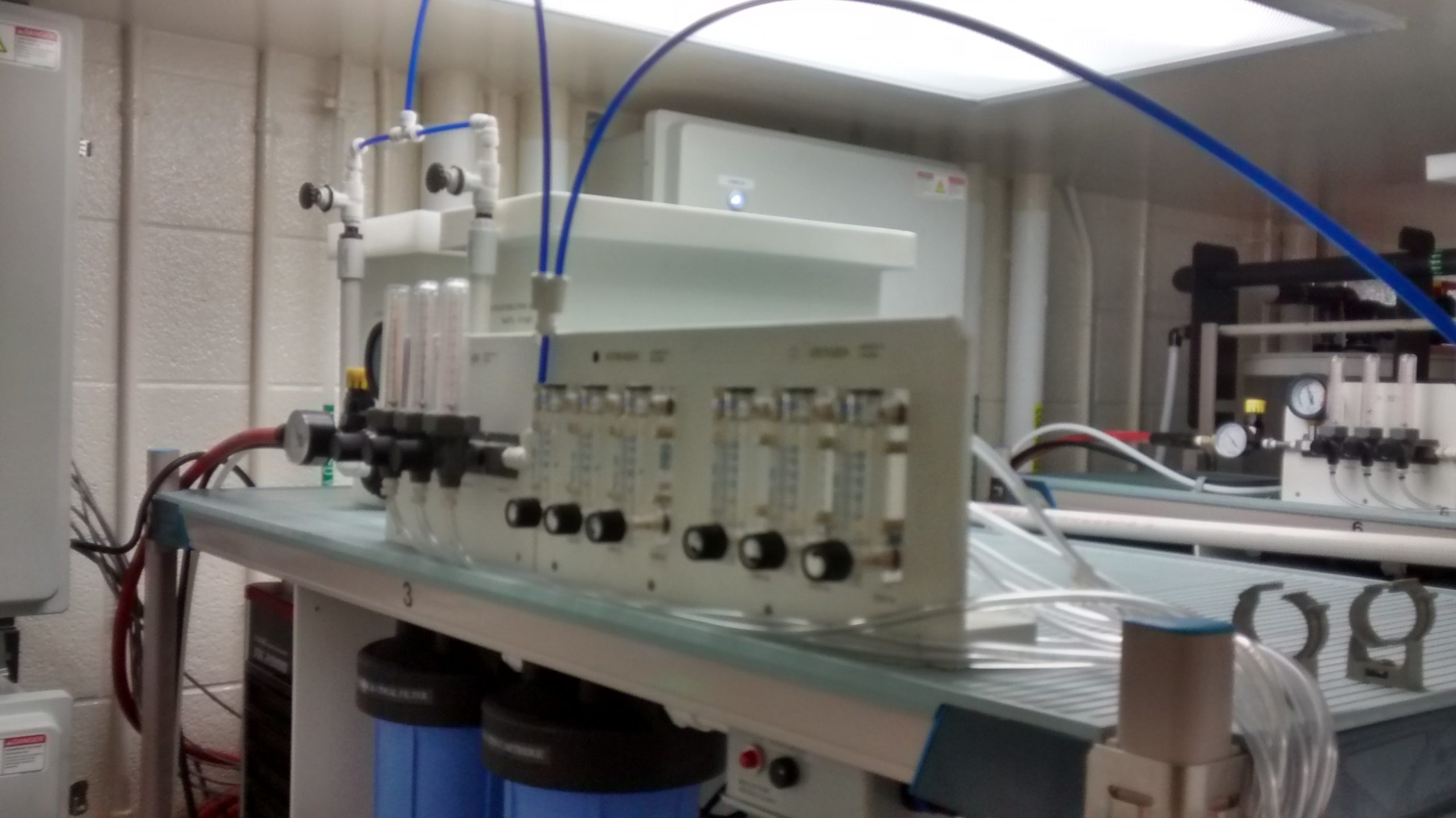McMaster University – Six Multi-Stress Units
McMaster University – Six Multi-Stress Units
|
Institution: |
 |
|
Location: |
Hamilton, Ontario, CANADA |
|
Contact: |
Dr. Graham Scott |
|
Habitat: |
Freshwater & Seawater |
|
Type of rearing unit: |
McMaster University – Six Multi-Stress Units |
|
Unit description: |
|
|
Mandate: |
|
Unique in the industry, the Multi-stressor system is the outcome of several years of R&D and careful design. It provides the means of keeping aquatic and marine organisms under precise, stable and reproducible environmental conditions. We hope this member of the AquabioLab family will contribute to propelling your research.
A Multi-stressor rack is composed of up to three independent water recirculating systems, one per shelf. Each system includes a habitat module (zebrafish tanks & plumbing for water inflow/outflow), and a filtration module (biofilter, cartridge filter, heat exchanger, controls) located on an adjacent rack). On each shelf runs a row of LEDs controlled by the Enviro-Monitron.
The Habitat Module is enclosed into opaque insulated cabinet to protect the animals for ambient room lighting and reduce chilling requirements. This unit is made to accommodate hypoxic control, as well as creating normoxic and hyperoxic conditions. The Multi-stressor components are illustrated in the figures below.
McMaster University – Six Multi-Stress Units features:
- Control of water temperature;
- Generate hyperoxic conditions;
- Generate hypoxic conditions;
- While under hypoxic conditions:
- an automatic mix of air, oxygen and nitrogen provides constant degasing action, protecting the animals from buildup of CO2 gas;
- your animal are protected against accidental drop of dissolved oxygen below the set point by automatically raising the level of oxygen to 100% saturation when/if this happens;
- The rate of increase and decrease of water temperature can be adjusted;
- Provides automatized control over make-up water flow (incoming new water in each Multi-stressor unit);
- Provides manual control over the water flow to each row of rearing tanks.
- Constant protection against nitrogen super saturation (a constant risk in pressurized systems) by the use of a trickling biofilter operating at ambient pressure with air inflow.
- The biofilter media is pre-activated with live freshwater nitrifying bacteria before delivery. This significantly reduces biofilter maturation time.



